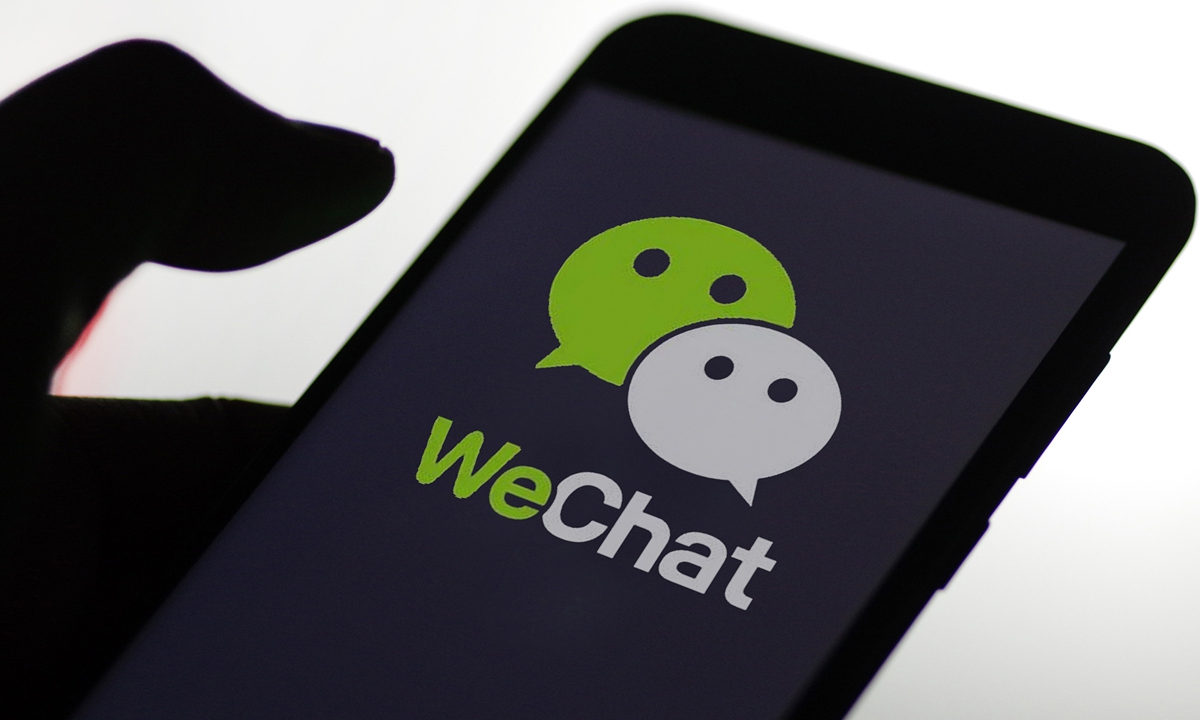WeChat will not be shut down on Sunday: plaintiffs
By GT staff reporters Source: Global Times Published: 2020/9/20 23:08:40

WeChat Photo:VCG
WeChat will not be shut down on Sunday, said an alliance representing WeChat users in the US, after a US district court in San Francisco on Sunday issued an order granting a nationwide preliminary injunction against the WeChat ban, putting on hold the Trump administration's plan to shut down the Chinese-origin app.
A 22-page order signed by Judge Laurel Beeler read that "the plaintiffs have shown serious questions going to the merits of their First Amendment claim that the [Commerce Secretary]'s prohibited transactions effectively eliminate the plaintiffs' key platform for communication, slow or eliminate discourse, and are the equivalent of censorship of speech or a prior restraint on it."
"WeChat is irreplaceable for its users in the US, particularly in the Chinese-speaking and Chinese-American community," according to the order obtained by the Global Times.
The order will effectively put on hold the enforcement of the WeChat ban as provided by the August 6 executive order and the Friday rule issued by the US Commerce Department, the US WeChat Users Alliance, a non-profit filing the motion, said in a statement sent to the Global Times after the issue of the order.
"Companies in the US including app stores and service providers can continue supporting the functions of WeChat. People in the US can continue using the WeChat app as usual," the alliance said.
"WeChat will not be shut down on Sunday," declared the alliance, namely plaintiffs in the lawsuit, calling the court order "an important and hard-fought victory" for millions of WeChat users in the US.
"The WeChat ban is motivated by something else other than a legitimate concern about national security," said the statement, citing Clay Zhu, co-counsel for the alliance and other plaintiffs.
"The president is trying to be tough on China in order to get more votes in November. Unfortunately, WeChat and its users are being harmed by his election tactics. We will do everything we can to defend the rights of all WeChat users under the law," Zhu stated.
The order is arguably a positive message to not only Tencent but also many users in the US, who worry they won't be able to use the app to keep in touch with their families and friends.
The court ruling came roughly 16 hours after the third hearing on the motion. Not long after a remote hearing, the third hearing on the motion, by the district court of the Northern District of California on Saturday (US time), judge Beeler issued court document No.53, which instructed plaintiffs' lawyers to draft a proposed order granting their renewed motion for a preliminary injunction against the WeChat ban.
"The US Commerce Department's WeChat ban, originally scheduled to take effect on September 20, would then be suspended upon, and to the extent of, the judge's revision, approval, and adoption of such a proposed order," a spokesperson for the US WeChat Users Alliance told the Global Times after the hearing.
The US Commerce Department said in a statement on Friday that it had decided to ban WeChat and TikTok from downloading and updating via app stores in the US as of September 20, and bar WeChat from providing any services to transfer funds or process payments within the country.
The hearing ended in about an hour. The Zoom conference room, which was capped at 500 people, filled up very quickly, and many people could not get in.
Kurt Opsahl, deputy executive director of the Electronic Frontier Foundation, affiliated with Harvard University, kept updating developments related to the hearing via his Twitter account.
"During the Zoom WeChat hearing today, the text chat was left open by accident. The court noted that this was not part of the hearing, as the audience does not participate in IRL hearings. But the chat comments reflected a very engaged live audience. People really care about this case."
According to data released by App Annie, a mobile data and analytics company, there were 45,500 new downloads of WeChat in the US in the 12 days from September 6-17. Between January and August of this year, WeChat had about 3.6 million monthly live users in the country.
Posted in: ECONOMY